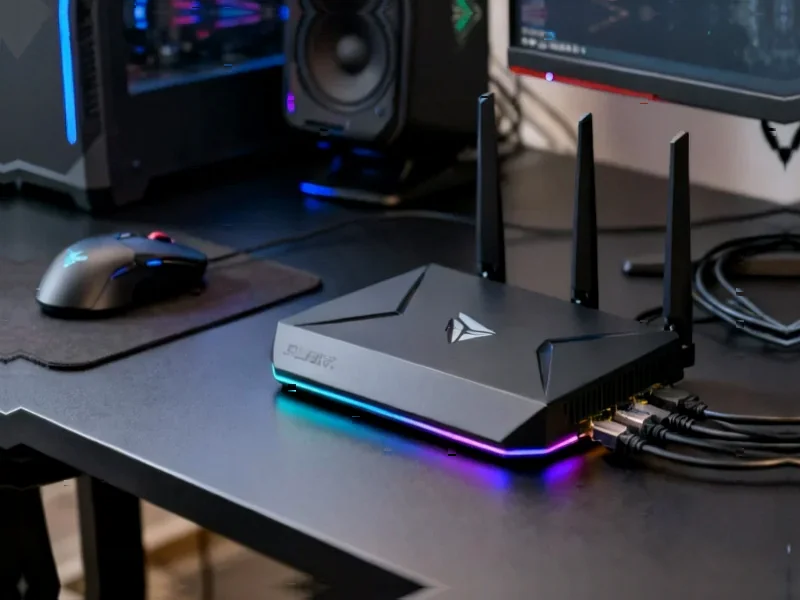According to Wccftech, Chinese PC case manufacturer Abee has launched its first mini PC called the AI Station 395 Max for $2,524. The system packs a flagship 16-core/32-thread Ryzen AI Max+ 395 processor based on Zen 5 architecture with an RDNA 3.5-based Radeon 8060S iGPU. It comes with a massive 128 GB of LPDDR5X memory clocked at 8000 MT/s and includes 2 TB of SSD storage. The cube-shaped device measures 199x199x199mm and uses a custom water cooling solution for thermal management. Power comes from a built-in 400W PSU using a 10-pin ATX12VO design that Abee claims reduces idle power consumption by up to 27%. Connectivity includes dual LAN ports with 2.5G and 10G options plus multiple USB4 Type C and Type A ports.
From cases to complete systems
Here’s the thing – Abee is primarily known for making PC cases and cooling components, not complete systems. This move into pre-built mini PCs represents a significant strategic shift. They’re leveraging their manufacturing expertise in thermal design with that custom water cooling solution, basically applying what they’ve learned from case design to create a complete product. And the timing is interesting – they’re jumping into the AI hardware gold rush right as everyone’s looking for compact, powerful AI workstations.
Who actually needs this machine?
At $2,524, this isn’t your typical mini PC for web browsing or media streaming. That 128GB of RAM is absolutely overkill for most users – we’re talking about memory capacity that would make many servers jealous. But for AI developers and researchers working with large models locally, that memory becomes crucial. The combination of Zen 5 processing power, massive RAM, and dedicated AI acceleration makes this potentially perfect for edge AI deployments where you need serious compute in a small footprint.
Why water cooling in a mini PC?
Most mini PCs use passive cooling or small fans, but Abee went with a custom water cooling loop. That tells you everything about the thermal demands of packing this much performance into a 8-liter cube. They’re essentially treating this like a high-end gaming PC rather than a traditional mini computer. The result should be sustained performance under heavy AI workloads without thermal throttling. It’s a bold move that shows they’re serious about performance, not just making another compact computer.
A niche but important play
Abee isn’t trying to compete with mainstream mini PC brands on price. They’re targeting a very specific professional audience that needs maximum AI performance in minimal space. The dual LAN ports with 10G capability further cement this as a workstation rather than a consumer device. It’s expensive, sure, but for businesses doing local AI inference or development, the total cost might actually be competitive compared to cloud computing bills over time. This feels like Abee testing the waters in a high-margin segment where their engineering expertise can really shine.




